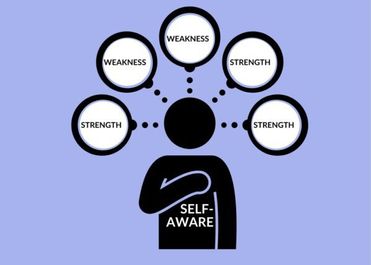
The reflections that lead us to self-knowledge are fundamental for the elevation of our wisdom and, consequently, for a happier life. Not that traditional teaching is not important, quite the contrary. However, those who know themselves also end up knowing the world. In addition to being fundamental to our daily lives, it is worth mentioning that the effectiveness of reflection is multiplied when the exercise of reflecting is carried out continuously throughout life.
A reflection that can lead you to know yourself better and also getting you to act in accordance with your true ideals is to ask yourself four continuous why questions. For example: you are happy? "No". Why (question 1)? "Because I don't like my job." Why (question 2)? “Because I regretted changing jobs.” Why (question 3)? “Because I liked what I did, but I cared more about the salary”. Why (question 4)? “Because I needed money at that time, but I already solved my problem”.
We can see that in this brief exercise we came to the conclusion of what is not making you happy and, mainly, why you are not happy. As simple as it may seem, this leads you to a fundamental condition for your problem to be solved. Having clearly identified the dilemma, you can proceed to the next step: set the options to solve it. In this case, the attempt to solve a (financial) problem ended up generating a probably worse one: the unhappiness of being where you are. Now what to do to solve this new question? Is it possible to improve your current situation at work, can you tolerate it or will you have to look for a new job? One more reflective exercise will need to be done.
The very definition of what happiness is is an exercise in self-knowledge that we develop throughout life. What makes me happy today is not even close to what made me happy yesterday, so it's not impossible that it will change tomorrow too. While a child, for example, defines happiness as doing whatever he wants and whenever he wants, the French philosopher Rousseau has another explanation: it's not doing what you don't want to do.
Finally, what is the relevance of this type of understanding? While the first is much more present in the child age group, making it unfeasible to be taken continuously in the adult phase, the second, although not a rule, evidently matches much more with the reality of an adult. It can be good or bad news, depending on the person and the situation, our preferences can be progressively changed, but it all depends on how grounded we are in ourselves.

























